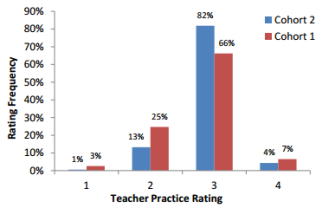New Jersey K-12 chief Chris Cerf announced Feb. 11 that he is stepping down from his post to take a job at Amplify, a company that creates digital products for public schools. Cerf, whose last day at the New Jersey education department will be Feb. 28, said he’s taken the post of CEO at Amplify Insight, which oversees assessments developed by the company. (My colleague Ben Herold has insights into the move with respect to Amplify at the Digital Education blog.)
A graduate of the Broad Urban Superintendents Academy in 2004, Cerf served for eight years as CEO of Edison Schools, Inc. (now called EdisonLearning), managing 150 schools in 19 states, and was also deputy chancellor of the New York City Department of Education before being appointed as New Jersey’s chief by Gov. Chris Christie, a Republican, in 2010. During his time in Gotham, Cerf worked under then-New York City K-12 Chancellor Joel Klein, who now runs Amplify.
“Over the past three years, we have taken a number of significant steps forward as a state,” Cerf said in the statement announcing his departure, citing “a new tenure law that, for the first time, ties the acquisition and loss of [teacher] tenure with educator effectiveness; the development of a new statewide accountability system that gives flexibility to our high-performing districts while focusing interventions on the lowest-performing 15 percent of schools in the state; real progress in Newark, including a nation-leading teacher’s contract, and the first steps to providing better options to students in Camden.” The state runs the school districts in both Camden and Newark.
He also goes on to highlight the new charter schools in the state and the department’s efforts to help Garden State teachers prepare for the Common Core State Standards.
In a statement thanking Cerf for his work, Christie also cited the Newark teachers’ contract and said, “Under his watch, our administration has moved forward with an aggressive and innovative agenda that’s getting real results for our children. We’re bringing new levels of accountability and fairness to the way we fund public education, expanding choice for the children and families who need it most.”
Speaking of that tenure law, at the end of last year, the state discussed the findings of a new pilot teacher-evaluation system that was a key portion of that tenure reform. That report showed that for teachers that took part in both years of the two-year pilot, 28 percent were either ineffective or only partially effective, as judged on a four-point rating scale (hat tip to nj.com reporter Peggy McGlone). That 28-percent figure is reached by adding the “Cohort 1" bars for points 1 and 2 on the x-axis below:

It will be interesting to see how that evaluation system evolves now that Cerf is leaving, although presumably Christie will appoint someone who agrees with the general thrust of both the new evaluation system and many of the other policies that Cerf oversaw.
Speaking of that, Newark, new contract aside, has seen a lot of controversy over the plans the state-appointed Superintendent Cami Anderson has for school closures and the expansion of charter schools. Anderson was appointed (at least technically) by Cerf to lead the state-run district. Could the turnover at the top of the state education department trigger more instability for her tenure?
On the national scene, this means another departure from the ranks of Chiefs for Change. The group added Delaware K-12 boss Mark Murphy and then Idaho chief Tom Luna at the end of 2013. But Luna announced his decision not to seek reelection in 2014, and now Cerf is leaving.
